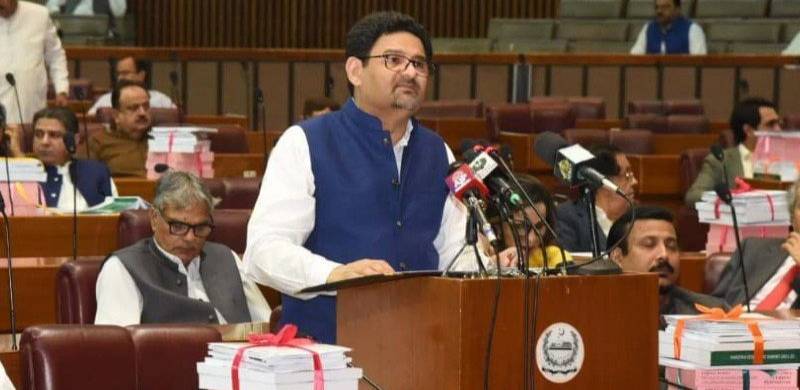
The Rs 9.5 trillion budget presented by Finance Minister Miftah Ismail in the National Assembly last week was a provisional one, with figures subject to change as per the requirements of the government's ‘deal’ with the International Monetary Fund (IMF), it has emerged.
The latest budget presented by Ismail featured some tax amendments, with the most notable one being the withdrawal of the 50% tax concessions enjoyed by ex-servicemen and serving officers within the army, provincial and federal governments on the sale of their first plots, as per a report by The Express Tribune.
Similarly, the tax rates on the flying allowances of the serving military and commercial pilots have been readjusted according to the normal rates, which will end up generating a revenue of nearly Rs 5 billion.
The most striking feature of the budget was Miftah's decision to term it as a 'provisional' budget, which is contrary to how must budgets are presented. Most of the diagrammatic tables featured in the FY22-23 budget include a footnote that says, “The figures are provisional. Final figures will be provided during budget session”, which means all the figures being given by the government may not be actualized.
A senior Finance Ministry official explained that footnote had to be added, as the final budget figures were not available at the time of printing of the books. He said that the total budget will likely remain Rs 9.5 trillion, but other figures and allocations could possibly change.
Sources have said that until two days ago, the size of the budget was believed to be Rs 9.442 trillion, which was marginally increased by Rs 60 billion at the time of presentation of budget, which indicates that the books were printed just hours before the speech by the finance minister.
The reason for the provisional figures, according to the sources, is disagreements between the government and the IMF over certain numbers and tax proposals.
Although Constitutionally, the National Assembly has the authority to approve, amend or reject the budget, it rarely ever exercises that right.
The latest budget presented by Ismail featured some tax amendments, with the most notable one being the withdrawal of the 50% tax concessions enjoyed by ex-servicemen and serving officers within the army, provincial and federal governments on the sale of their first plots, as per a report by The Express Tribune.
Similarly, the tax rates on the flying allowances of the serving military and commercial pilots have been readjusted according to the normal rates, which will end up generating a revenue of nearly Rs 5 billion.
The most striking feature of the budget was Miftah's decision to term it as a 'provisional' budget, which is contrary to how must budgets are presented. Most of the diagrammatic tables featured in the FY22-23 budget include a footnote that says, “The figures are provisional. Final figures will be provided during budget session”, which means all the figures being given by the government may not be actualized.
A senior Finance Ministry official explained that footnote had to be added, as the final budget figures were not available at the time of printing of the books. He said that the total budget will likely remain Rs 9.5 trillion, but other figures and allocations could possibly change.
Sources have said that until two days ago, the size of the budget was believed to be Rs 9.442 trillion, which was marginally increased by Rs 60 billion at the time of presentation of budget, which indicates that the books were printed just hours before the speech by the finance minister.
The reason for the provisional figures, according to the sources, is disagreements between the government and the IMF over certain numbers and tax proposals.
Although Constitutionally, the National Assembly has the authority to approve, amend or reject the budget, it rarely ever exercises that right.

